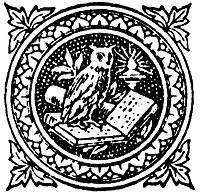Marginalia
Home
About Marginalia
Current Issue
Archived Issues
Notes to Contributors
Links to Other Online Journals
Marginalia -- The Website of the MRG
And for mannys loue I am rysyn up rede.
For man I haue mad my body in brede
His sowle for to fede.
(The N-Town Plays, Play 35, ll.81-84)
In this, the third, Yearbook issue of Marginalia, our writers Joni Henry and V.E. Langum are concerned with the place of the human body in Christian faith. These two articles are the product of the MPhil in Medieval and Renaissance Literature at the English faculty here in Cambridge. Those who do this course (formerly eleven months, but from this October reduced to eight) are required to write two essays such as these, as well as bibliographical, palaeographical and codicological studies and a more extensive dissertation. Langum and Henry's essays were selected by members of the English faculty as representative of the best work done this year.
Focussing on the Resurrection plays of the N-Town cycle, Joni Henry's essay examines how the bodily senses are employed to deduce proof of Christ's resurrected body. Many scenes in the plays revolve around the moment when a character interprets the evidence of his or her senses and either succeeds or fails to recognise Jesus. She argues that these physical encounters dramatise the fallibility of corporeal proofs, and show the audience that the only solution is faith.
V.E. Langum's essay is concerned with the bodies of Christians as depicted in exempla. Opening with the attention-grabbing statement that '[l]ate medieval exempla teem with burned and chewed tongues, cleaved bodies, engorged genitals and rotting corpses', Langum goes on to explore how the sins of the tongue are given form through dismemberment, ulcers and leprosy. She argues that these conditions, which destroy the body's wholeness, act as manifestations of the sinner's incompletion, separated as he is from God and the community of believers. Drawing on both pastoral concerns for the sacraments and Augustinian theories of language, Langum demonstrates that the punishments of the exempla warn against eternal corporal and corporate dismemberment.
Thanks, as always, go to all those who make this journal possible: our reviewers, the members of the Editorial Board and the Advisory Board, and those technical creatures who put this thing onto the web. We are also indebted to the faculty members who supervised these essays and suggested their inclusion in the journal, and to the contributors for giving their permission to reproduce their work. Finally, we would like to thank those who organise and attend the Medieval Reading Group, from which this journal originally sprang, and which continues to be the lifeblood of this endeavour.
Ruth Ahnert, on behalf of the Medieval Reading Group
 Contents |  Next |
�2004 The authors and the Medieval Reading Group at the University of Cambridge
No material may be reproduced without written authority.
Last modified on .
Marginalia -- MRG Website::Contact Us::About Us::Credits and Thanks::Search::Archives

